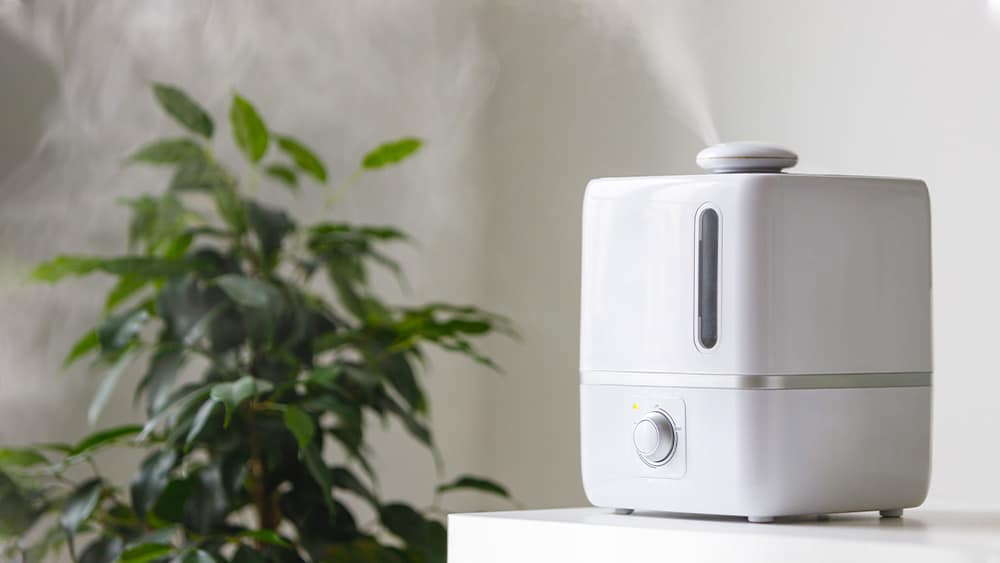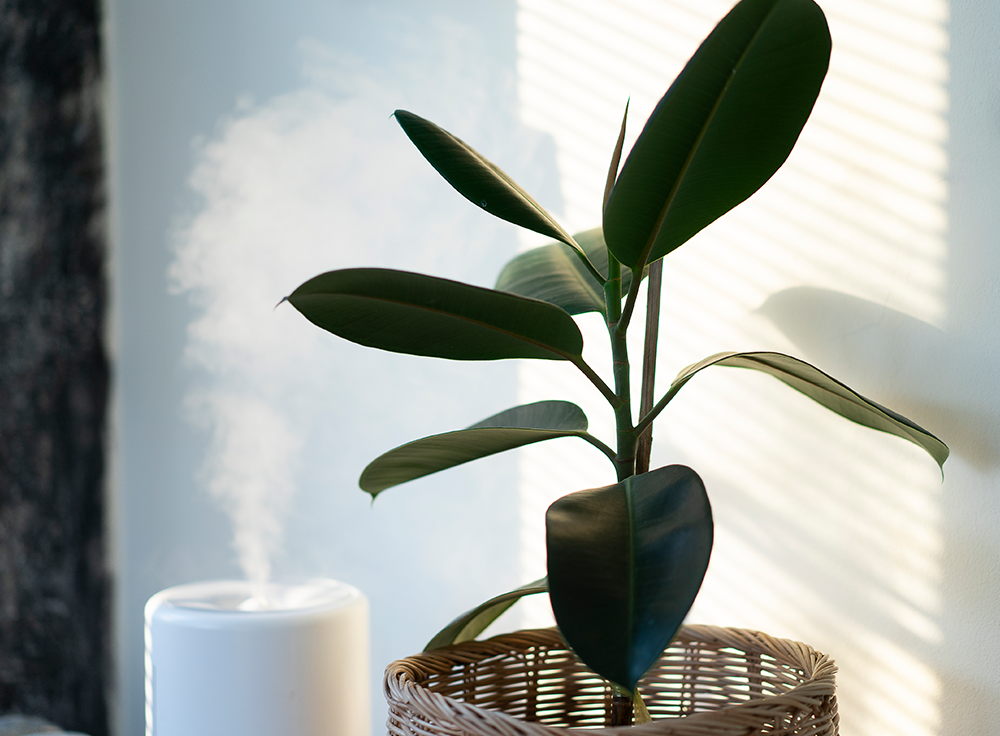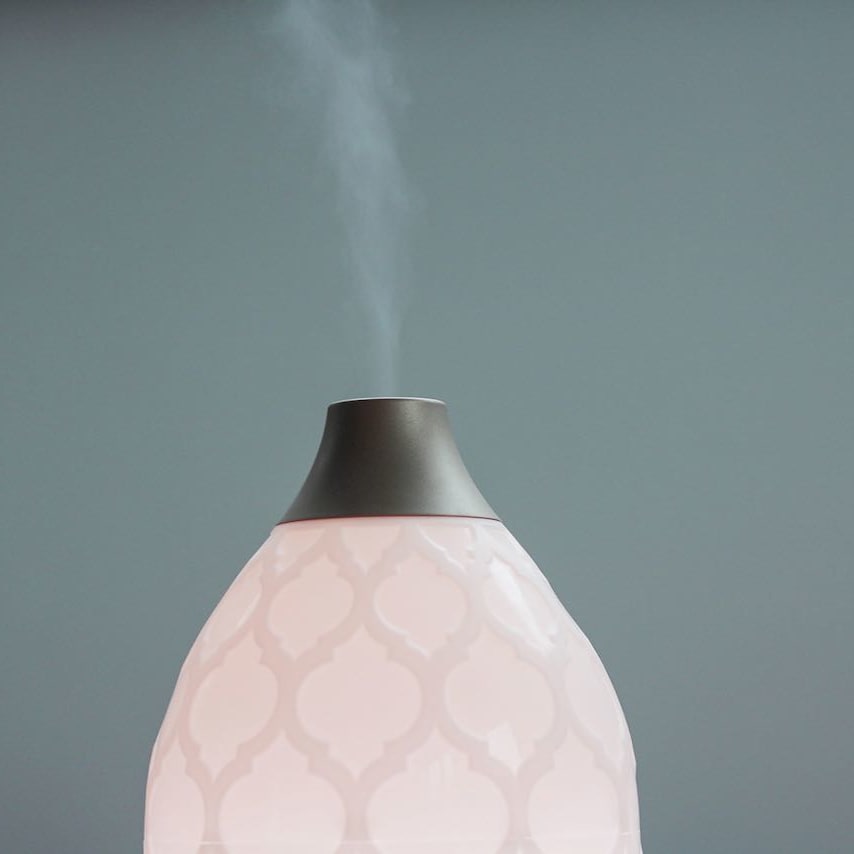Can a Humidifier Help Your Atopic Dermatitis?

If you have atopic dermatitis or eczema, you know how difficult it can be to manage. The chronic condition can cause dry, itchy, and inflamed skin that’s uncomfortable and embarrassing. While medications are often the first line of defense for managing symptoms, there are other non-medical options that can help. One such option is a humidifier. In this article, we’ll explore the potential benefits of using a humidifier for atopic dermatitis and discuss some important factors to consider before purchasing one.
Benefits of a Humidifier May Vary Depending on Where You Live

Humidifiers work by releasing water vapor or steam into the air to increase the humidity level in a room. This can help alleviate dry skin caused by low humidity levels, which can be particularly beneficial for people with atopic dermatitis. According to Dr. Jenny Murase, a dermatologist at the Palo Alto Medical Foundation, dry air can strip the skin of natural moisture, exacerbating the symptoms of eczema.
However, the benefits of a humidifier may vary depending on where you live. If you live in a climate that is already humid, using a humidifier may not provide much relief. In fact, excessive humidity can make eczema symptoms worse. On the other hand, if you live in a dry climate, a humidifier can help add moisture to the air and improve your skin’s hydration.
The National Eczema Society recommends keeping living and work spaces at 30 to 60 percent humidity. To determine the humidity level in your home, you can use a device called a hygrometer. These devices are inexpensive and can be found at most hardware or home goods stores.
How to Use a Hygrometer
To use a hygrometer, follow these steps:
- Place the device in the room you want to measure.
- Wait at least 10 minutes for the hygrometer to register the humidity level.
- Check the reading on the device. If the humidity level is below 30 percent, consider using a humidifier.
Humidifiers May Help More in Winter Months

While a humidifier can be beneficial year-round, it may provide more relief during the winter months when indoor heating systems can dry out the air. The combination of cold, dry outdoor air and warm, dry indoor air can be particularly harsh on the skin, leading to increased symptoms of eczema.
In addition to helping with skin hydration, using a humidifier during the winter months can also provide other benefits, such as:
- Reducing the risk of flu and other respiratory infections by keeping the air moist
- Preventing damage to wood furniture and floors caused by excessive dryness
- Reducing static electricity, which can be a nuisance during the winter months
Types of Humidifiers
There are several types of humidifiers available for home use. Some of the most common include:
- Cool mist humidifiers: These humidifiers use a fan to blow air over a wick or filter that has been soaked in water, creating a fine mist that is released into the air. Cool mist humidifiers are generally considered safer than warm mist humidifiers because there is no risk of burns from hot water.
- Warm mist humidifiers: These humidifiers heat water until it boils, releasing steam into the air. Warm mist humidifiers can be particularly helpful for people with respiratory issues because the warm steam can help soothe the throat and lungs.
- Ultrasonic humidifiers: These humidifiers use high-frequency vibrations to create a fine mist that is released into the air. Ultrasonic humidifiers tend to be quieter than other types of humidifiers but can also be more expensive.
When choosing a humidifier, consider factors such as the size of the room you want to humidify, the type of humidifier that best meets your needs, and the cost of the unit. It’s also important to choose a high-quality humidifier that is easy to clean and maintain.
Keeping Humidifiers Clean Is Key
One potential drawback of using a humidifier is the risk of bacterial or fungal growth in the water tank. If a humidifier is not cleaned regularly, it can become a breeding ground for harmful bacteria that can be released into the air and cause respiratory issues.
To avoid this problem, it’s essential to keep your humidifier clean and well-maintained. Follow these tips to ensure your humidifier stays clean and safe:
- Use distilled or demineralized water instead of tap water, which can contain minerals that can promote bacterial growth.
- Clean the humidifier at least once a week, following the manufacturer’s instructions for cleaning and disinfecting the unit.
- Replace the water in the humidifier daily to prevent stagnant water from accumulating.
- Replace the filter in your humidifier as recommended by the manufacturer.
By keepingyour article.
The Bottom Line on Humidifiers for Atopic Dermatitis
While a humidifier is not a substitute for medical treatment for atopic dermatitis, it can be a helpful addition to your eczema management plan. By increasing the humidity in your home, you can help keep your skin hydrated and reduce symptoms of dryness, itchiness, and irritation.
When using a humidifier for atopic dermatitis, remember:
- The benefits may vary depending on where you live. Use a hygrometer to determine if a humidifier is necessary.
- A humidifier may provide more relief during the winter months when indoor heating systems can dry out the air.
- Choose a high-quality humidifier that best meets your needs and is easy to clean.
- Keep your humidifier clean and well-maintained to avoid bacterial or fungal growth.
By incorporating a humidifier into your eczema management routine, you may find relief from the uncomfortable symptoms of atopic dermatitis.
Conclusion
Atopic dermatitis can be a challenging condition to manage, but there are steps you can take to alleviate symptoms and improve your quality of life. Using a humidifier is one non-medical option that may help keep your skin hydrated and reduce the discomfort associated with eczema.
If you’re considering purchasing a humidifier, be sure to choose a high-quality unit that meets your needs and is easy to clean and maintain. With regular use, a humidifier may provide relief from the dryness, itching, and irritation caused by atopic dermatitis.
Remember, a humidifier is not a substitute for medical treatment. If you’re experiencing severe or persistent eczema symptoms, speak with your healthcare provider to discuss your treatment options.
















